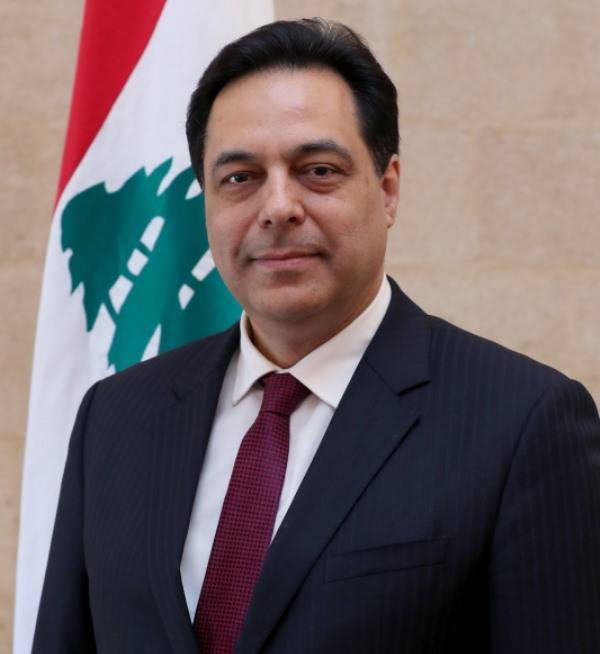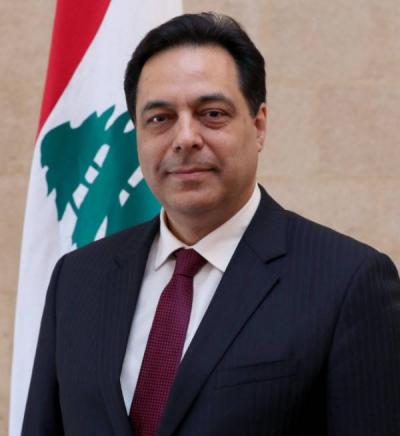The caretaker Prime Minister, Dr. Hassan Diab, announced that next Sunday will mark the end of the general lockdown, emphasizing that the country will reopen partially while continuing to apply strict measures.
The National News Agency reported that during the beginning of a meeting of the ministerial committee for the coronavirus, Dr. Hassan Diab confirmed that next Sunday is the end of the general lockdown, considering that Monday will not be an ordinary day. Diab stressed the need to continue implementing measures to prevent a return to the situation prior to the general lockdown, noting that the country will partially open while applying strict measures, indicating that there will be a complete closure of some sectors, partial opening of certain sectors, and allowing some sectors to operate under specified conditions.
Diab revealed the four plans that have been adopted to combat the pandemic in the upcoming phase, beginning with the gradual reopening of the country, explaining that it is not possible to risk a complete reopening all at once. The second plan is the post-lockdown strategy, which includes three programs: an intensive PCR testing program, a tracking program to contain the virus, and a program to increase hospital capacity. Additionally, the third plan is the health emergency plan, which includes providing respiratory devices for home use, in cooperation between the Lebanese Red Cross and municipalities, while the fourth plan is the national vaccination strategy developed by the Ministry of Health.
Diab mentioned that the decision for a general lockdown taken a month ago came after the country reached the brink of collapse in the health sector due to the rampant spread of the deadly coronavirus, emphasizing that the lockdown aimed to prevent this collapse. He pointed out that the number of critical cases had reached the maximum capacity that the Lebanese health sector could handle while the number of daily deaths was rising, and the situation had reached a frightening threshold.
Diab added that the decision for lockdown was due to many people not adhering to the minimum health protection measures against COVID-19. If people had adhered to the protective measures, it could have significantly helped in avoiding the lockdown. He indicated that throughout the month of lockdown, the results of the previous phase were showing daily—with a significant increase in the number of infections, a sharp rise in critical cases, and a high number of deaths. The positivity rate for tests increased notably to about 22 percent, compared to approximately 13.5 percent on the last day of 2020. The number of patients in intensive care was about 450 at the end of last year, while it is now nearing one thousand. The number of people on ventilators was around 140, but it has now risen to about 350. The death toll on the last day of the previous year was 12, whereas it has now exceeded eighty. The death rate was about 0.75 percent, compared to a global average of 2.18 percent, while Lebanon's rate today has reached around one percent, noting that all these negative indicators are a result of the phase preceding the lockdown.
Diab continued that what the government was able to achieve during this lockdown was to halt the collapse and curb negative indicators. He pointed out that in the coming days, we should start to see a decline in these indicators, especially since the general lockdown succeeded in reducing the infection rate from 2.7 to one, which is a positive indicator to build upon.
Diab expressed his gratitude to the medical staff and all those working on the frontline against the coronavirus in various capacities, who are making great efforts in service of their country, and to the Lebanese people who endured the lockdown and its social, economic, and psychological difficulties, noting that the majority of Lebanese willingly complied with the measures this time. There was a sense of responsibility among most who respected the general lockdown decision and the measures in place.
Diab emphasized that the real responsibility of confronting COVID-19 is primarily individual, secondly communal, and thirdly official, noting that we should not assume that we have overcome the danger. He added that we are in a very delicate phase, and therefore must continue some measures; we cannot treat this phase lightly, indicating that the Lebanese people must continue to bear personal and communal responsibility and adhere to the measures that protect them and their families and communities during this crucial phase leading up to the launch of the national vaccination campaign against COVID-19 according to the Ministry of Health’s plan. He pointed out that in ten days the campaign will begin and will continue until immunity is achieved for the Lebanese population against this deadly virus.
Diab noted that there will be objections to the decision to partially reopen the country, and there will be those who refuse to open up, as well as those who deny the continued closure of some sectors. Each group has its own viewpoint, which we respect, confirming that the lives of people are more important than any calculations and that the fears experienced by patients and their families are stronger than any opinion or argument, and the tears of parents mourning the loss of a family member are more painful than any theory.
Diab confirmed that the number of deaths due to COVID-19 has reached around 3,500 individuals, stressing the need not to be lenient in this confrontation, adding that the primary concern is to protect our families and communities. This confrontation is in its final stages, and vaccines will help challenge this pandemic and eventually triumph over it.




